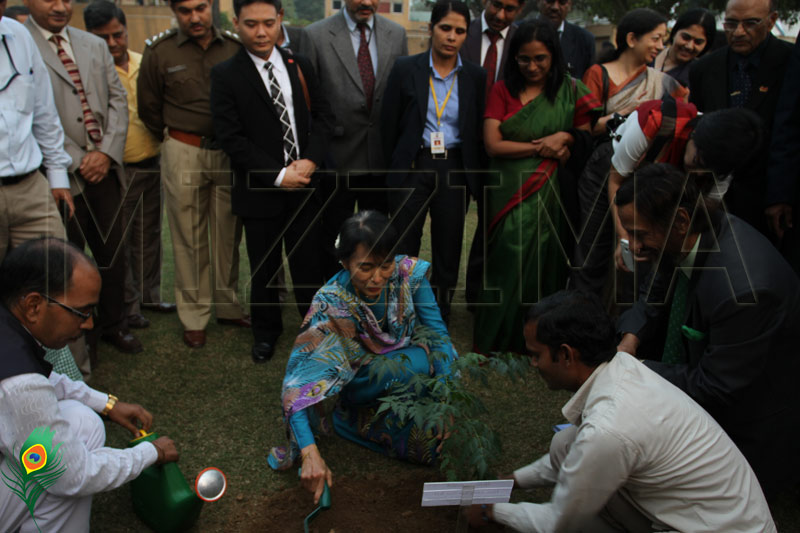On the third day of her visit to India, Burmese pro-democracy leader Aung San Suu Kyi planted a tree—a shade sapling (Cedrela Febrifuga)—during a visit to The Energy and Resources Institute (TERI), an environment research project located in Gurgaon special economic zone outside Delhi.
Accompanied by Dr. R K Pachauri, the director general of TERI and other institute officials, she took a tour of the project’s research facilities. Like Suu Kyi, Dr. Pachauri is a Nobel Peace Prize laureate, accepting the honor in 2007 as chairman of the Intergovernmental Panel on Climate Change.

Suu Kyi said that utilizing energy and natural resources is related to politics and social affairs.
Although electricity has been generated by using wind power and solar power on a trial basis in Burma, to date only hydropower has been exploited as a resource to generate electricity in Burma. Suu Kyi said that Burma is looking for responsible investment that is not only sensitive to the environment, but also secures the future of the country.
Suu Kyi noted that Burma is rich in energy resources, but needs an effective energy policy.
Bamboo is abundant in Burma, she said, so it should be possible to produce quality products made from bamboo. Likewise, she said, orchid cultivation should be encouraged in Burma as it was in India.
Suu Kyi expressed interest in the generation of electricity through wood-fired power and witnessed the electricity being utilized to charge a mobile phone.
The Burmese opposition leader then toured the Nanobiotechnology Research Center, the Bioremediation Complex and other energy-efficient projects on the campus.
TERI employs many experts on energy and provides training for human resources development. It says it also aims to train the young people of India to be leaders in the energy and resources sector.



